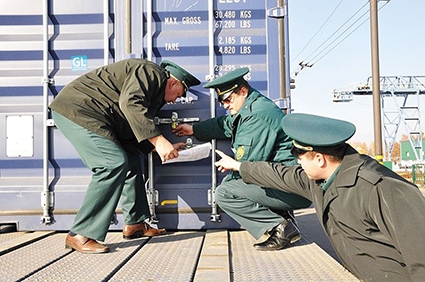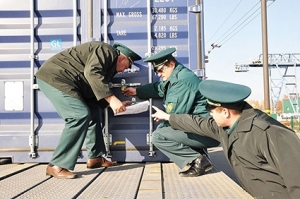The Customs Headache awaiting the Swiss
Op-Ed
While the people debated on who, where and when to celebrate May 17 in Tbilisi, whether those fighting against homophobia should head to Rustaveli Avenue or those protecting the holiness of the family in the churches, the Swiss SGS company started to monitor the Russo-Georgian border. Finally, Russia signed the agreement about control of the “trade corridor,” thus giving a green light to the new transit order in the South Caucasus. Georgia signed said agreement six months prior to this, so why did the Kremlin finally make up its mind now?
Three years after the August War, in November 2011, Russia and Georgia signed the agreement about customs monitoring at the borders, which concerned three trading corridors: Adleri-Zugdidi, Nari-Gori and Zemo Larsi-Kazbegi. This was the tribute that Russia paid in return for Georgia’s agreement that allowed them to become members of the World Trade Organization. About seven years have passed in which Tbilisi and Moscow have read between the lines differently. Tbilisi believed that by signing the agreement, Russia recognized Georgian borders, because the document never stated names like ‘South Ossetia’ or ‘Abkhazia’ and was itself named “The Agreement Between the Government of Russia and the Government of Georgia,” while Moscow argued that it was Georgia that had recognized its borders by Enguri and Gori, because these locations are described in the document in geographic terms of "latitude" and "longitude" instead of their names. So what kept the Russians waiting?
The development of events shows that it was in the same period when Tbilisi and Swiss SGS made an agreement last year, that the so-called customs offices of the occupied territories started operating within the Russian customs system. This meant that according to the Kremlin documents, the Russian customs border begins not at Psou or the Roki Tunnel, but by the River Enguri and Ergneti village. Russian customs manipulations do not fall under any logic. Even if this combination were correct, it is still confusing why the Swiss monitors should be standing at the Northern exit of the Roki Tunnel or the River Psou and why they should give data about monitored cargo to the integrated database of the WTO, which will be sent to Official Tbilisi. In international political language this means indirect recognition of Georgia’s legitimacy to have information about what cargo is moving between Russia and Georgia’s occupied territories.
Kremlin’s imagination is truly boundless, but what they don’t get, or perhaps do not want to realize in Moscow, is well-known and apparent to those living in the occupied territories. The de-facto leaders argue that not a single fly can get into the territories without their consent. “Someone must provide for the safety of cargo, transport and those people who are carrying the goods. Georgia cannot do this on our territory, nor can Russia do so because South Ossetia controls its own land,” said the “former Minister of Foreign Affairs of South Ossetia,” Davit Sanakoev. “Therefore,” he went on, “South Ossetia should be participating as a party in this agreement – this is logical in light of the said issues.”
Sokhumi’s position is similar and local political analysts believe that Russia will face difficulties using the Abkhazian territory for transit. Izida Chania of Ekho Moskvy wrote: “They can call Abkhazia a corridor, or a porch, but the prerequisite won’t be the dreams written in the agreement, but the polite treatment of friends and even ill-wishers. Otherwise, the Swiss company will have to monitor the flow of cargo from territory beyond Abkhazia: it will be hard to maintain the work of the ‘chips,’ if the Russian army dislocated in Abkhazia and Russia don’t turn from allies into prison guards.”
Neither Tskhinvali nor Sokhumi are planning to let the goods over the border without negotiating first that Tbilisi and Moscow sign an agreement specifically with them as an “independent state”. Great headaches await the Kremlin regarding these “trade corridors” if it really wants to realize the agreement that it signed with the Swiss SGS on May 18. Otherwise, this document too will be just plain paper, like many others that the Kremlin has signed before.
By Zaza Jgarkava












